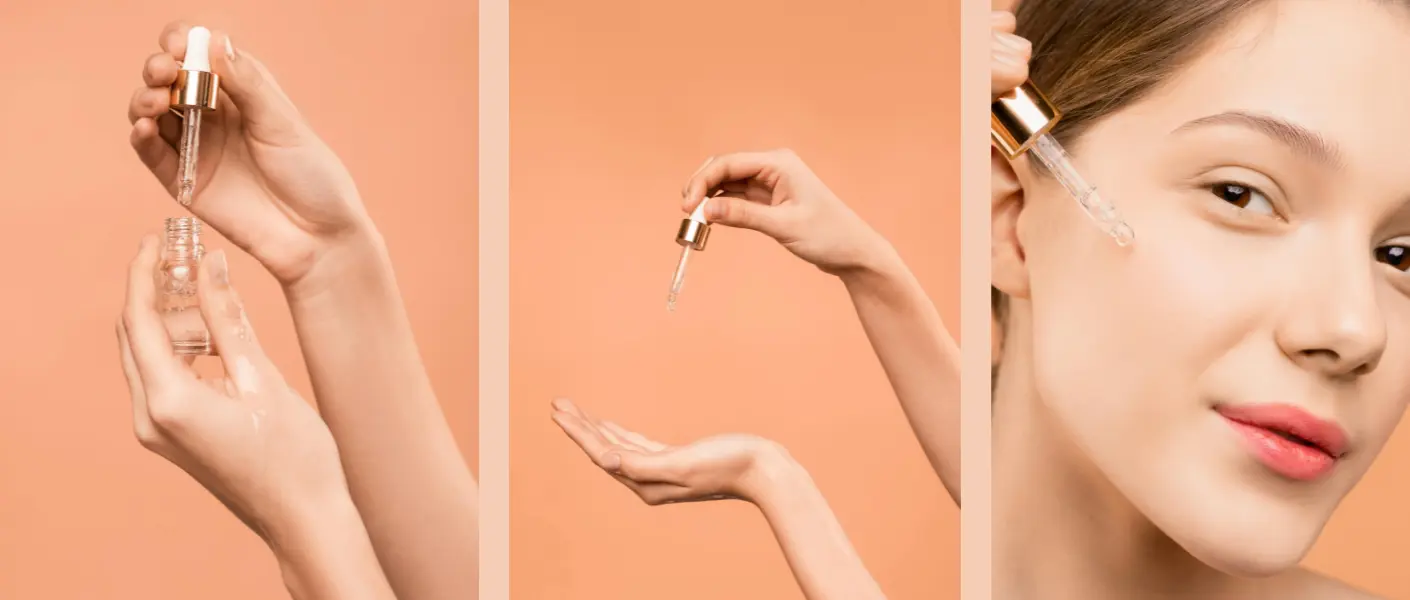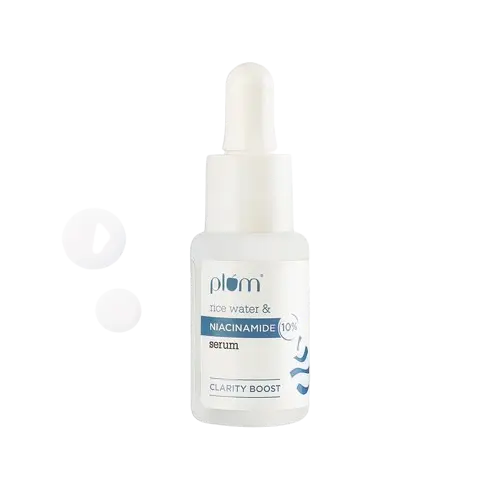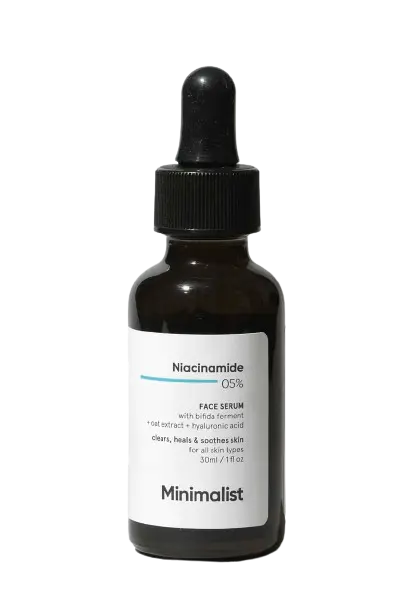Skincare enthusiasts often rave about the transformative power of serums, but what exactly is the role of serum in skincare? To understand this, let’s delve into the world of serums and uncover why they are considered indispensable in any skincare routine.
In this blog, we will dive into the benefits of using Niacinamide, Hyaluronic Acid, and Vitamin C serums.
How is Serum Different From Moisturizer
Serums, in essence, are highly concentrated formulations packed with active ingredients that target specific skin concerns.
Unlike moisturizers, which primarily focus on hydrating the skin’s outermost layer, serums penetrate deeper into the skin, delivering potent doses of nutrients directly where they are needed most.
What Does a Serum Do to the Face?
One of the primary roles of serums is to provide targeted solutions for various skin concerns, such as fine lines, dark spots, acne, and uneven texture.
Whether you’re looking to combat signs of aging, brighten a dull complexion, or control excess oil production, there’s likely a serum formulated to address your specific needs.
Another key aspect of serums is their lightweight texture and fast-absorbing nature. Unlike heavier creams or lotions, serums are typically lightweight and easily absorbed, making them ideal for layering with other skincare products.
This means you can customize your skincare routine by incorporating multiple serums to address different concerns without feeling weighed down or greasy.
Let’s have a look on different serums and their properties and how they can help you with your skin concerns.
Niacinamide, Hyaluronic Acid, and Vitamin C Serums
1. Niacinamide Serum
Are you also looking for answers to what does niacinamide serum do? Well, Niacinamide, also known as Vitamin B3, is a versatile and powerhouse ingredient in skincare formulations. Its wide-ranging benefits make it a go-to solution for various skin concerns.
Benefits of Niacinamide Serum
- Minimize pores, making them appear smaller and less noticeable.
- Effective in controlling excess oil production, making it an excellent choice for individuals with oily or acne-prone skin.
- Has anti-inflammatory properties, which can help reduce redness and calm irritated skin, making it suitable for those with sensitive or reactive skin.
- Evens out skin tone and strengthens the skin barrier, leaving your complexion smooth and radiant.
- Also, fights signs of aging.
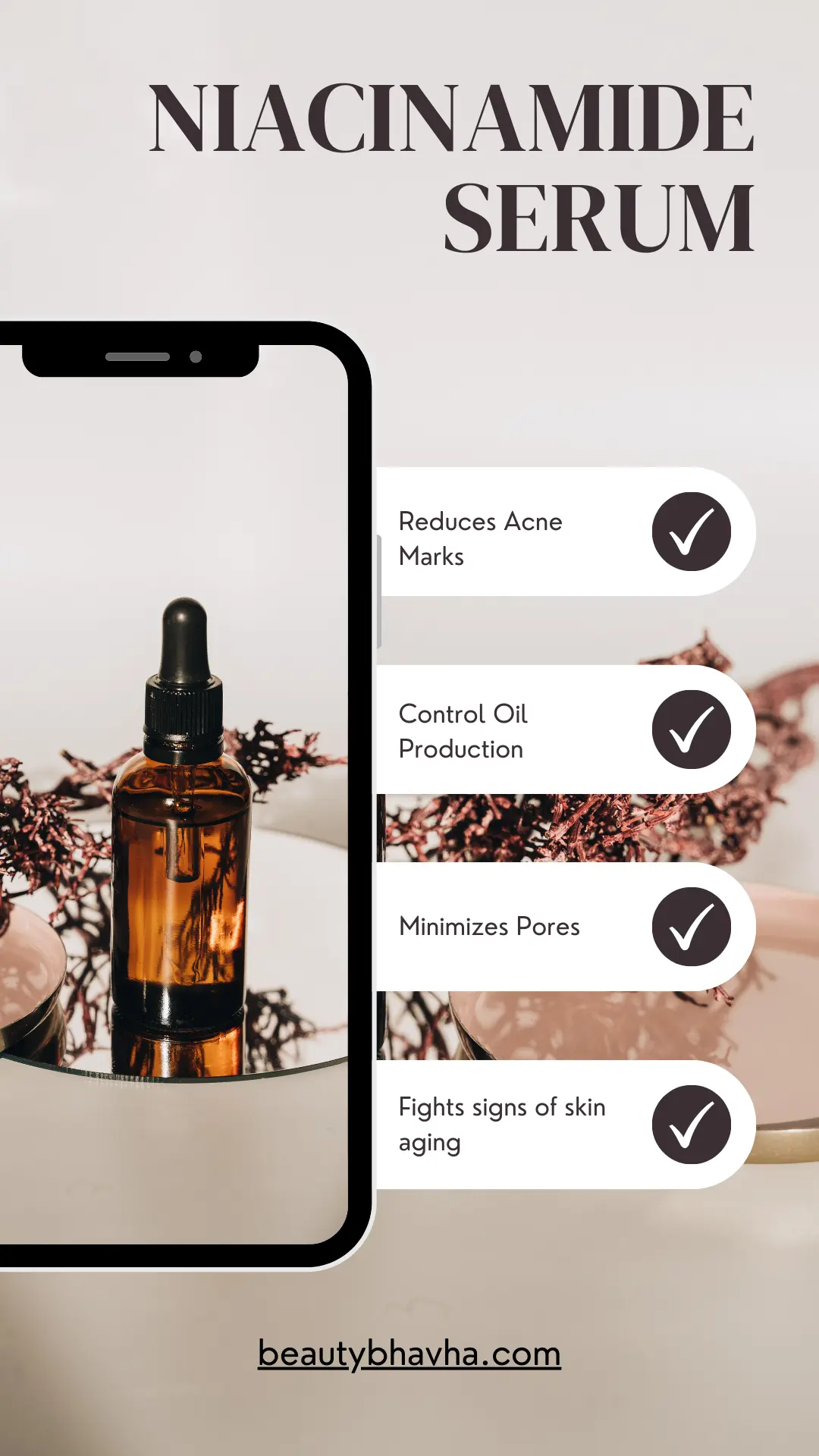
Which Skin Type Needs Niacinamide Serum?
Niacinamide Serum can be used by all skin types i.e:
- Dry skin
- Oily Skin
- Combination Skin
- Sensitive Skin
Product Recommendation
2. Hyaluronic Acid Serum
Hyaluronic Acid is a naturally occurring substance found in the skin that helps maintain moisture levels, and so is known for its exceptional hydrating properties.
It has the remarkable ability to hold up to 1000 times its weight in water, making it an unparalleled hydrating agent in skincare.
Different Types of Hyaluronic Acid
Hyaluronic Acid comes in various molecular weights, each offering unique benefits for the skin.
Low molecular weight Hyaluronic Acid penetrates deeper into the skin, providing intense hydration and promoting collagen production.
Medium molecular weight Hyaluronic Acid offers surface hydration, plumping the skin and reducing the appearance of fine lines and wrinkles.
High molecular weight Hyaluronic Acid forms a protective barrier on the skin’s surface, locking in moisture and preventing dehydration.
Let’s delve into what makes Hyaluronic Acid a skincare essential and how to harness its benefits effectively.
Benefits of Hyaluronic Acid Serum
- Restore and Replenish the Skin’s Moisture Barrier
- Smooth and Supple Skin
- Keeps Skin Plump
- Reduces Fine Lines
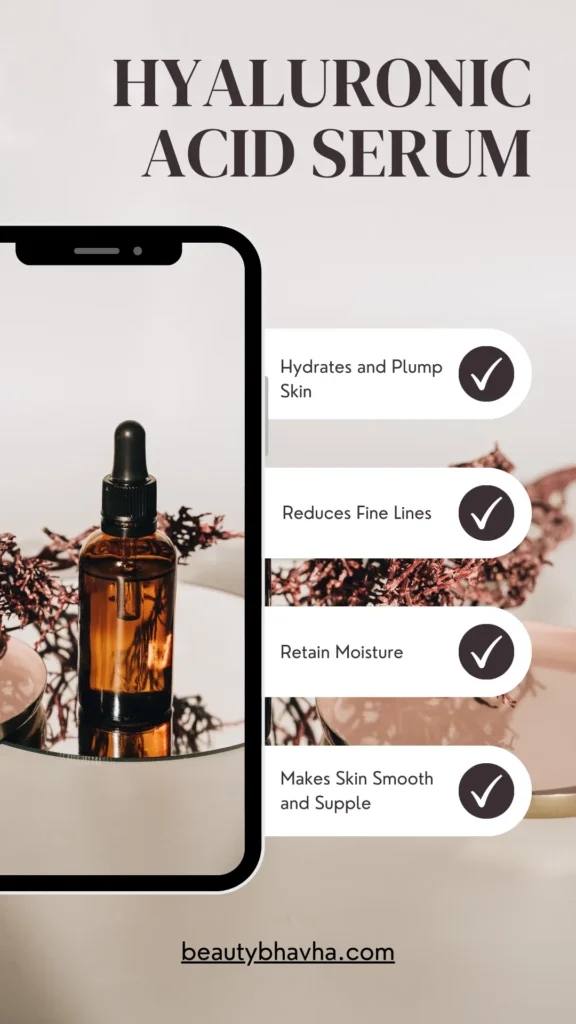
Using Hyaluronic Acid Serum Based on Skin Type
Dry Skin: Apply Hyaluronic Acid serum liberally to dry areas of the face and neck to replenish moisture levels.
Dehydrated Skin: Use Hyaluronic Acid serum as a hydration boost before applying moisturizer to restore the skin’s moisture balance.
Oily Skin: Opt for a lightweight Hyaluronic Acid serum to hydrate without adding excess oil to the skin. Apply sparingly to avoid a heavy or greasy feel.
By incorporating a Hyaluronic Acid serum into your skincare routine, you can effectively combat dryness, dehydration, and dullness, revealing a hydrated, radiant complexion that glows from within.
Product Recommendation
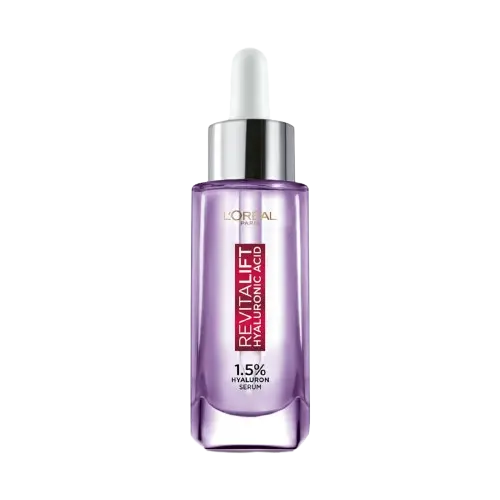
Buy Now
3. Vitamin C Serum
Vitamin C, a superstar antioxidant, isn’t just good for boosting your immune system. When applied topically as a serum, it becomes a powerful ally for achieving a radiant, youthful complexion.
The most potent form is L-Ascorbic Acid, but it’s also the most unstable, breaking down quickly when exposed to light and air. For a more shelf-stable option, consider Sodium Ascorbyl Phosphate, although it’s less potent.
Benefits of Vitamin C Serum
- Maintain Skin Elasticity and Firmness.
- Brightens Dark Spots and evens out Skin Tone.
- Repair Sun Damaged Skin.
- Fights Hyperpigmentation.

With consistent use, Vitamin C serum can become your secret weapon for a brighter, more youthful complexion. Remember, however, to choose the right type for your skin and apply it correctly to maximize its benefits.
Product Recommendation
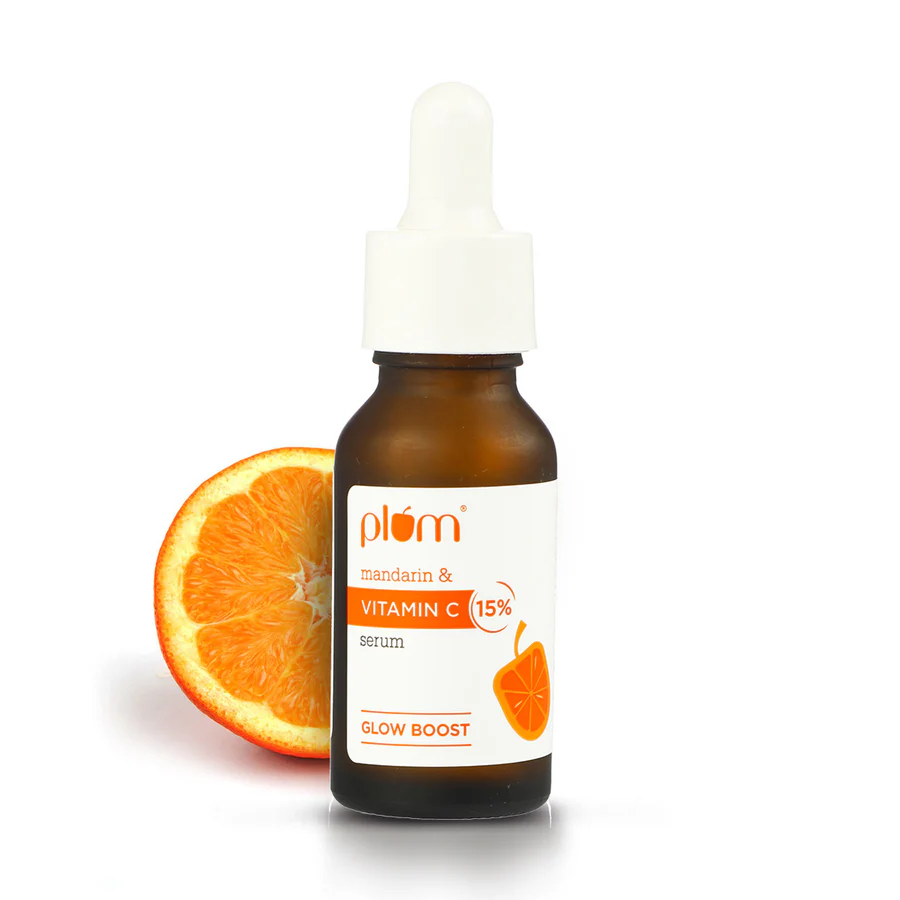
Buy Now
Additional Tips!!
- Know your skin type and concerns before selecting a serum.
- Always patch-test new serums to check for any adverse reactions.
- For personalized skincare advice, consult a dermatologist.
Share your favorite serums or any questions you have in the comments. Don’t forget to explore BeautyBhavha.com for more informative skincare content to guide you on your journey to glowing skin.
